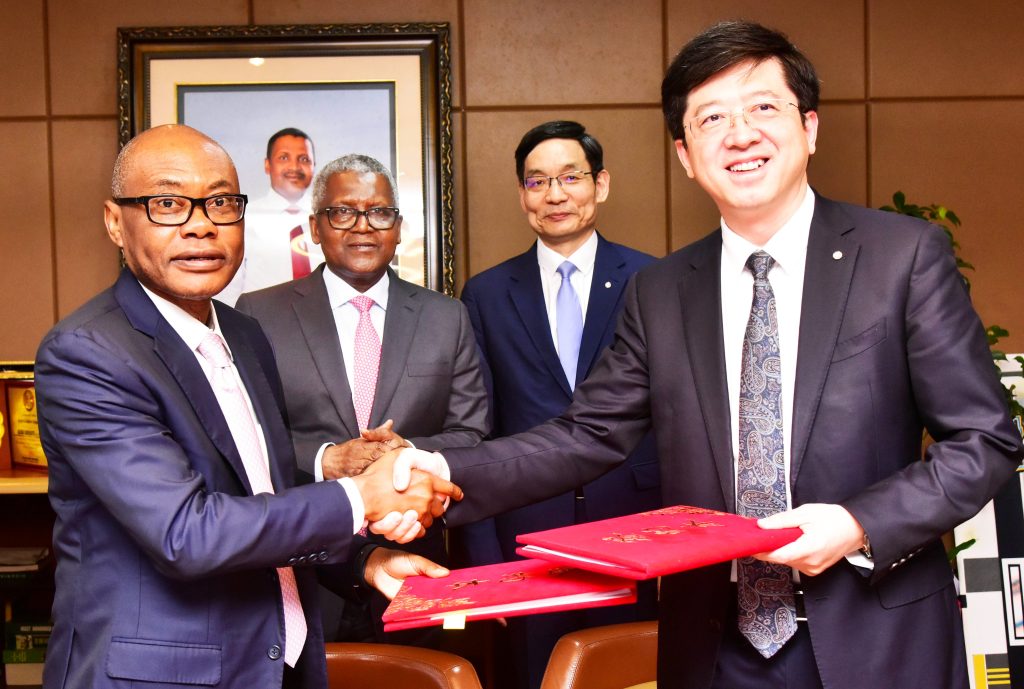Aliko Dangote says Nigeria can become a Refining Hub, thereby saving Africa $17 billion on petrol imports annually
Nigeria needs to boost its crude oil production and manage its crude supply efficiently to fuel domestic refineries, shifting the country from being a net importer to a net exporter of petroleum products.
This was the key message from Aliko Dangote, Chairman of Dangote Refinery and Petrochemicals Company, during his keynote address at a summit organized by the Crude Oil Refinery Owners Association of Nigeria (CORAN) in Lagos. The event gathered key figures from the government and stakeholders in the midstream and downstream oil sectors.
Dangote highlighted Africa’s heavy reliance on imports for petroleum products despite the continent producing over 3.4 million barrels of crude oil daily. He revealed that Africa imports around 3 million barrels of petroleum products each day, mainly from Europe, Russia, and other regions, costing the continent an estimated $17 billion annually. He emphasized that Nigeria has a unique opportunity to leverage its position and become a key exporter of refined petroleum products, as proximity would reduce logistics costs and serve markets more competitively.
“Both crude oil and petroleum products will travel shorter distances, and we will eliminate the need for floating storage. Countries will be able to source their petroleum products just-in-time. Nigeria and Africa can become self-sufficient, keeping value on our shores. We have achieved this in cement and can do the same with petroleum,” Dangote remarked.
READ ALSO: It’s time to end costly fuel subsidies, Dangote tells FG
He also noted that the Dangote Refinery already produces sufficient diesel and jet fuel for Nigeria’s needs and has recently commenced the production of PMS (premium motor spirit) with plans to scale up to meet the country’s demands. The refinery’s products have already reached international markets such as Europe, Brazil, the UK, USA, Singapore, and South Korea.

Represented by Engr. Mansur Ahmed, Group Executive Director of Dangote Industries, Dangote stressed that Nigeria must develop a refining capacity of 1.5 million barrels per day and ensure domestic crude supply to seize this opportunity. He called on the government to incentivize investors, contrasting it with Dangote’s efforts to build its refinery without government incentives.
“It’s disheartening that while countries like Norway are investing oil proceeds into future funds, Africa is spending oil revenues from the future. We need to prioritize domestic crude supply and expand our production capacity to meet the needs of new refineries. The Tinubu administration is making strides in this area by fast-tracking IOC divestments,” Dangote added.
He also highlighted how disruptions in global petroleum trade flows, particularly from Europe, present an opportunity for Nigeria to establish itself as a refining hub. As a major exporter of refined products, Nigeria stands to improve its balance of trade and generate essential foreign exchange.
“Let’s work together to turn Nigeria into a global refining powerhouse,” Dangote urged stakeholders.
Chairman of IPPG/Waltersmith Refinery & Petrochemicals, Abdulrazaq Isa, echoed Dangote’s sentiments, calling for government support to ensure crude availability, enforce domestic supply obligations, and implement pricing mechanisms to combat smuggling.
Captain Emmanuel Iheanacho (rtd), Chairman of CORAN’s Board of Trustees, praised the Dangote Refinery for producing Euro-V compliant products, ensuring better public health by reducing exposure to high-sulphur fuels. However, he warned that Nigeria’s failure to meet its OPEC quota leads to significant financial losses, estimating a $83 billion annual deficit.
Despite local refining advancements, Iheanacho noted that tank farms remain crucial and urged the Nigerian Midstream and Downstream Petroleum Regulatory Authority (NMDPRA) to consider cancelling import licenses as local refineries begin to meet domestic demand.
Huub Stokman, Chairman of the Major Energies Marketers Association of Nigeria (MEMAN), expressed optimism that Nigeria is on the cusp of becoming Africa’s refining leader, a development that would substantially boost the economy. CORAN Chairman, Momoh Oyarekhua, also recognized the challenges facing domestic refiners and affirmed their commitment to collaborating with regulators to resolve supply issues.
The Minister of State for Petroleum Resources (Oil), Senator Heineken Lokpobiri, assured the government’s ongoing support for refining initiatives. Similarly, Dr. Doris Uzoka-Anite, Minister of Industry, Trade, and Investment, reiterated the administration’s goal to ensure value addition before exporting Nigeria’s resources.
The summit also featured two panel discussions focusing on Nigeria’s downstream petroleum sector, exploring strategies to achieve self-sufficiency in petroleum products and positioning the country as a key player in global trade.
9News Nigeria/NAN